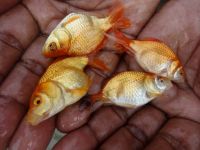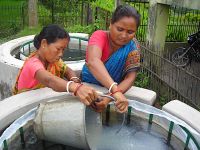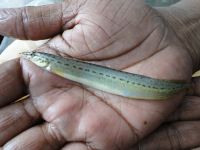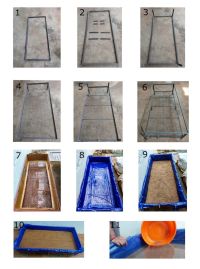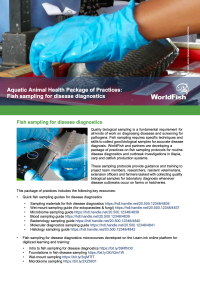The article highlights the successful commercial-scale breeding, propagation, rearing, and sale of aquarium fish species in the Howrah and South 24 Parganas districts of West Bengal, India. It focuses on the innovative practices of two experienced aquarium fish farmers, Sri Bikash Sau and Sri Swapan Parua, who have introduced a novel approach to aquarium fish culture in open earthen and common village ponds. The success stories of Sri Bikash Sau and Sri Swapan Parua serve as inspirations for small and medium-scale farmers and aqua-entrepreneurs. Their innovative approach to open pond production for aquarium fishes demonstrates the increasing potential and expansion of the aquarium fish business in the region.
Aquaculture has traditionally been a male-dominated activity. Changes in rural dynamics, with men migrating to cities for better opportunities, have led women to take up aquaculture in Bengal. Collaboration with Krishi Vigyan Kendras and local R&D institutions have provided them with training in ecological aquaculture, focusing on resource utilisation. Women engage in agro-ecological farming, utilising local inputs and traditional knowledge. The cooperative approach has enabled women to systematise production processes at a low cost, overcoming challenges and reviving local production. By forming self-help groups women have access to unconventional water resources and utilise mobile communication tools to strengthen the fish production system. The article discusses the broader role of women in diverse domains of aquaculture, including fish culture, hatchery management, nutrition, and fish processing technology, showcasing their resilience, capability, and contributions to the success of aquaculture.
The striped spiny eel, Macrognathus pancalus, is economically significant but faces population decline due to anthropogenic factors. This study presents a comprehensive approach to breeding and seed production techniques for M. pancalus, conducted at the Regional Research Centre, ICAR-Central Institute of Freshwater Aquaculture, Rahara, India. The study describes broodstock management simulation of natural habitat to stimulate natural breeding. Techniques for hatching and larval rearing, management of early spawn, and precautions to prevent cannibalism are presented. Survival of 88% after one month was achieved. The breeding and seed production techniques provided are suitable for farmers to adapt, and will contribute to the conservation and utilisation of M. pancalus in sustainable aquaculture practices. The findings also highlight the economic potential of this species to provide a nutritious option for consumers at affordable prices.
This study explores the cultivation of the Indian spiny loach, Lepidocephalichthys thermalis, in indigenously designed poly-lined iron frame tanks as a sustainable solution. The article details the fabrication methods for these tanks, highlighting the use of rust-resistant iron and low-density polyethylene sheets.The study proposes a supplementary feed mixture and provides insights into water quality management to ensure optimal conditions. The study demonstrates the potential for achieving a net production level of 1 kg from 400 liters, offering economic viability for farmers. The modified tank-based rearing system is shown to be beneficial in hilly regions with limited land and water resources.
Quality biological sampling is a fundamental requirement for all kinds of work on diagnosing diseases and screening for pathogens. Fish sampling requires specific techniques and skills to collect good biological samples for accurate disease diagnosis. This package of practices developed by WorldFish and partners provides advice on fish sampling protocols for routine disease diagnostics and outbreak investigations in tilapia, carp and catfish production systems. These sampling protocols provide guidance and training to project team members, researchers, resident veterinarians, extension officers and farmers tasked with collecting quality biological samples for laboratory diagnosis whenever disease outbreaks occur on farms or hatcheries. A free online introductory course on fish sampling for disease diagnostics is also available via Learn.ink.
